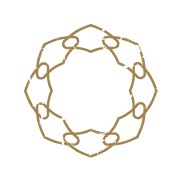Partner Up (Seriously)
There’s a reason we keep nudging you to work with a partner during class. It’s not just about accountability or being social—though those things help. It’s because working with someone else makes you a better mover. Faster.
When you're training with a partner, you're not just going through the motions—you’re engaged. You're observing, responding, adjusting. That kind of attention is rare, and it changes how you move. You start to see movement, not just perform it. You start to recognize patterns, both in your partner and in yourself. That level of awareness is what leads to long-term progress.
And the truth is: spotting each other, cueing each other, adjusting intensity in real time—it works. You don’t need to be a coach to offer value. You just need to be present and willing to help.
But here's where things get stuck: people get self-conscious. They worry they're doing it wrong. That they’re being annoying. That they’re not “qualified” to support someone else. Or worse, they feel like they’re imposing or that their help might offend.
Let’s just call that what it is: ego. Not the loud, arrogant kind. The quiet, nervous kind. And on the flip side, sometimes the ego shows up in the person receiving the help. They take feedback or support from another member as some kind of judgment. Like they’re being corrected instead of cared for. Again—ego.
We can do better. This gym is meant to be a space where we drop that stuff. Where we choose learning over perfection, support over pride. And if we can do that, the rate of growth—physically, mentally—is huge.
Movement is a language, a language with ourselves and with others. The more we practice the more fluent we get!
What to Do When You Partner Up
1. Spot Each Other Intentionally
This doesn’t mean hovering or micromanaging. It means being aware. If your partner is working through a new or heavy movement, stay close enough to offer physical support if they need it. Know where to stand. Know what they’re working on. Ask first—“Want a spot on this?”—and then actually spot them, don’t just stand there. Hands-on when needed, hands-off when not. Respect the moment.
This is a skill in itself. Speak with your coach about how best to spot, speak to your partner. Make it collaborative. Over time it will get better, don`t expect perfection on day one.
2. Cue Without Judging
You’re not here to fix people. You’re here to pay attention and offer what you notice. That might sound like, “Hey, your foot was sliding a bit on that last rep—want to try grounding through the heel more?” It’s specific. It’s useful. It’s offered as an observation, not a correction. Keep it short, and keep it honest. If you’re not sure, ask the coach. That’s part of learning too.
3. Use Each Other for Intensity Adjustments
Partner stretching, resisted movements, banded drills—these things work better when two people are dialed in. You can help increase intensity by applying gentle resistance or adding a hold. Or you can help dial it back by spotting and giving your partner the space to move with control. Either way, you’re helping them find the edge—not push them off it.
Speak with a coach about where to give pressure or assistance. Speak with your partner about how it feels.
4. Stay Curious, Not Controlling
Approach it like you’re in the lab, not on a podium. You’re both figuring things out. If something looks off, you can ask instead of assuming. “Did that feel different than the last round?” is a better start than “You should…” You’ll both learn more that way. Keep the conversation open and ego-free. That’s the sweet spot.
Likewise on the receiving end. Stay open. No one is trying to turn the gym into a competition, we all just want to try to get a little stronger and move better. Try to stay open to receiving feedback so it can become a more collaborative conversation.
5. Use the Coach
The class Coach is like a facilitator, not a drill sergeant dictating the whole thing. The more we can ask and work with them, the more we will be able to help our fellow members. Nobody expects anyone to know any of this, asking questions is a cheat code.
No one expects perfection here. We do expect effort. That includes showing up for each other, not just yourself.
Partner up. Move better. And leave your ego at the door.
